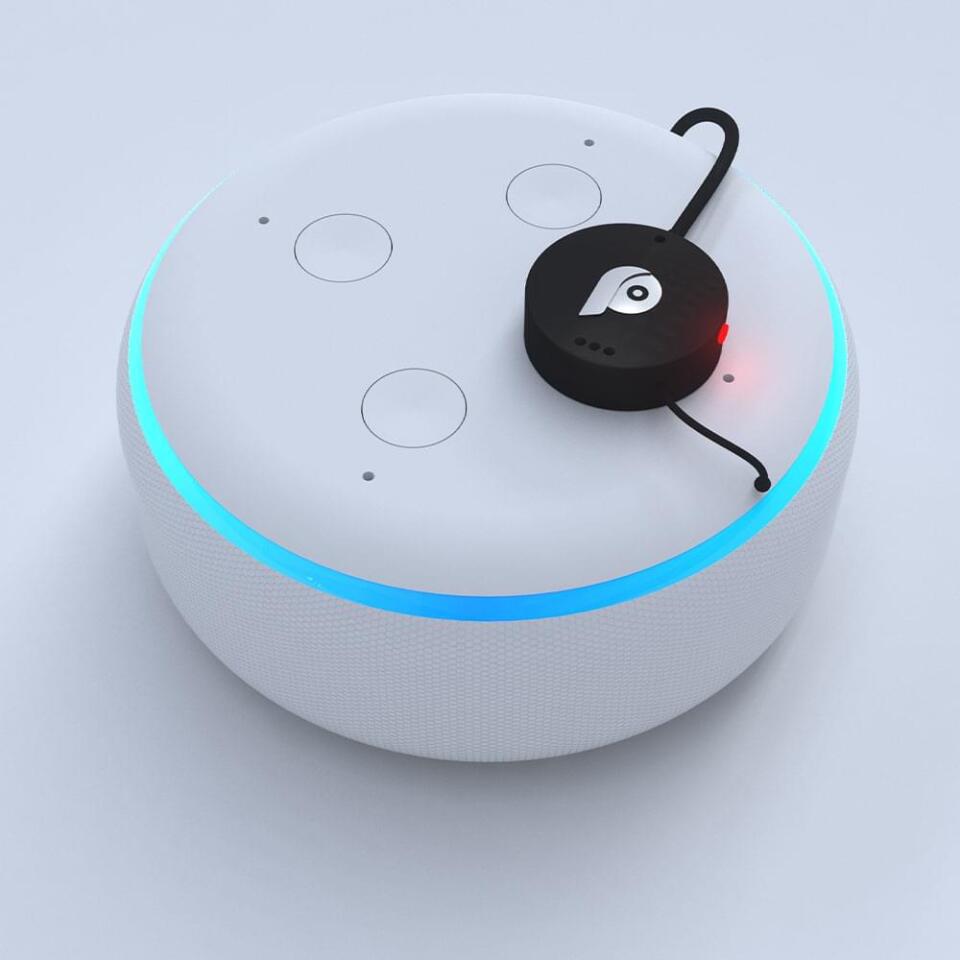Voice-activated smart speakers can be pretty handy around the house, but they come with a privacy trade-off. Paranoid is an appropriately named start-up that’s now unveiled a set of devices that can make sure smart speakers are only listening when you want them to.
Whether it’s from Apple, Amazon, Google or another huge tech company, there’s a decent chance that there’s a smart speaker in your house. Sure, it’s convenient to ask Siri to read out the next step of the recipe when you’re elbow-deep in cake mix, but the unsettling truth is that in order to do its job that speaker needs to be always listening.
The companies behind them insist that the devices are only activated by their trigger phrases. But last year a whistleblower revealed that false activations of Apple’s Siri are common, meaning quality control contractors often hear snippets of private conversations and even people having sex.
Being paranoid seems like a fair reaction then, so Paranoid – the company – has developed three new devices that prevent these smart speakers from eavesdropping. All three devices are built around a small circuit board that blocks audio from reaching the smart speaker until it hears its own wake word: “Paranoid.”
It might sound ironic to solve the problem by doing the exact same thing, but the difference is that the Paranoid system is completely self-contained. It doesn’t connect to Bluetooth or Wi-Fi, so nothing can be heard by other people. As an added bonus, that means it can’t be remotely hacked, which is another security concern for smart speakers.

The three systems all use different methods for blocking sound, designed for different types of smart speakers. The Paranoid Home Button sits over the top of the speaker’s mute button, and when it hears the trigger word it physically presses the button to unmute the speaker. Once you’re done, it then mutes the device again until you need it next.
The Paranoid Home Wave, meanwhile, sits on top of the smart speaker and generates white noise and interference, which the microphone won’t be able to hear over. It only stops that temporarily when it hears the wake word. The company says that this generated noise is too quiet to be heard by the human ear, and it won’t disrupt any other devices.
And finally, the Paranoid Home Max is for the true tin-foil hatters. In this case, users actually have to send their smart speakers in to Paranoid to retrofit them with the blocking device. The company’s technicians will wire the microphone through the Paranoid device.
The first two devices are powered by USB, while the third saps power from the speaker itself. The company says that the systems currently work with most models of Amazon Echo and Google Home devices, but others will be targeted in future.

To us, it does all sound pretty – well, paranoid, and it does mean you’re just putting your faith in a different electronics company. But still, privacy is a genuine concern with these smart speakers, and this is an interesting way to tackle the problem.
Paranoid says that all three types of devices will retail for US$49, but are currently available for $39. Shipping is available to the US and Canada, but should open up to other regions later in the year.
Source: Paranoid






